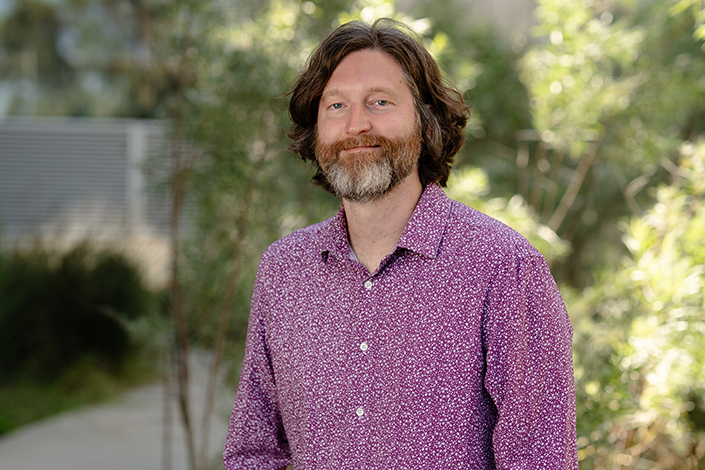Donation Fuels Research on DMT and its Potential Medical Use to Address Mental Health Conditions
Research is focused on the effects of the psychedelic on the human brain, with potential to help treat depression, addiction and neurological conditions such as stroke
Published Date
Article Content
The University of California San Diego School of Medicine has received a gift from the nonprofit organization DMT Quest to support research on the effects of N,N-dimethyltryptamine (DMT), a powerful psychedelic that has been used for centuries by indigenous cultures.
Despite anecdotal and preliminary reports suggesting DMT’s potential to treat conditions such as depression and addiction, as well as neurological conditions such as stroke, its precise effects on the brain and overall health remain largely unexplored. Led by Jon Dean, a postdoctoral scientist in the Department of Anesthesiology at UC San Diego School of Medicine, researchers will work to learn more about the effects of DMT in humans. Dean also serves as director of the DMT Division for the UC San Diego Center of Psychedelic Research.
Notably, DMT is present naturally (endogenously) within human tissues. In Dean’s previous research, he discovered that endogenous DMT also exists in the rat brain at levels comparable to serotonin, a neurotransmitter vital to brain function.
“DMT is a fascinating molecule not only because it has been used therapeutically for centuries but also because it exists naturally within our bodies. Its endogenous presence in the mammalian brain at such high concentrations suggests a physiological and potentially health-relevant role for naturally occurring DMT.” said Dean. “We are grateful to DMT Quest for their generous support of this research program. This donation will allow us to go deeper in the study of this compound in potentially helping address mental and physical health conditions, and also gain fundamental insights into its impact on the brain, perception and the neurobiology of mental imagery and imagination.”
The funding will help to support DMT-related projects at UC San Diego’s Center for Psychedelic Research, such as efforts to image endogenous DMT in the human brain non-invasively, soon-to-begin extended-state DMT studies and in-vitro research to determine whether endogenous DMT may function as a neurotransmitter.
“This research highlights UC San Diego’s commitment to advancing scientific discovery and enhancing human health through innovative research,” said Ruth Waterman, M.D., chair of the Department of Anesthesiology. “We are grateful to DMT Quest’s support as UC San Diego researchers look at novel compounds such as DMT, which may result in breakthroughs in understanding the complexities of the human brain and neurological conditions.”
To learn more about supporting this research including matching opportunities, please contact Kara Reed at k3hendrickson@ucsd.edu.
 LEARN MORE ABOUT HOW YOU CAN SUPPORT UC SAN DIEGO »
LEARN MORE ABOUT HOW YOU CAN SUPPORT UC SAN DIEGO »

Share This:
You May Also Like
Stay in the Know
Keep up with all the latest from UC San Diego. Subscribe to the newsletter today.



